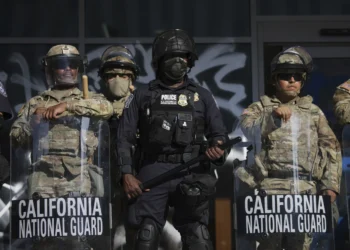One of my writer friends tells a harrowing story about being at an important lunch meeting and suddenly realizing that he’s choking to death.
It was one of those meals where everyone else at the table was rich, successful, and intimidating. He was invited along as the guest of one of the participants, and the ulterior motive was to introduce him to a powerful movie studio executive who could, if the lunch went well, throw some much-needed work his way.
My friend was just starting out in show business, but was already married with a newborn at home, and most of his waking hours were spent dealing with a hungry and fussy infant, or shaking with anxiety about his present lack of money or prospects. He arrived at the expensive and fashionable restaurant and quickly regretted the entire plan, which was hatched a few days before. His lunch companions each pulled up in fancy cars — my friend parked several blocks away so no one would notice his 1989 Daihatsu Charade — in the kind of casual clothes only very powerful people can get away with wearing.
“And the watches!” my friend said later, still in awe. “My God, the watches! Each one the size of a hockey puck!”
He felt tiny, awkward, and out of place from the very first minute, and as the meal progressed, his neurotic insecurity worsened. At some point, he said, he realized that he couldn’t breathe. Apparently, in the stress of the moment, he forgot how to chew and swallowed something large and firm enough to block the flow of air into and out of his lungs. He was aware that if he didn’t signal for help, he would die there, face down in his steamed sea bass.
On the other hand, the sheer embarrassment of asking for help seemed somehow worse than suffocating to death because once you’re dead, you (presumably) are beyond mortification. So he sat there, thinking about his life’s journey, until it occurred to him that he had to do something because he had a child at home and he didn’t want them growing up hearing, “Daddy died at Catalina Bar & Grill because he didn’t want to make a fuss.”
He got up from his chair, smiled weakly to the others at the table, and wobbled away to the men’s room. Once safely alone, he ran full speed toward the wall, slamming himself against it again and again until a steamed carrot shot out of his mouth and across the room. He then gasped for air, felt the blood return to his head, tucked in his shirt, and retook his place at the table.
As he tells it, that was when he turned it on. He was funny, confident, and wise. He told a few killer stories and listened attentively to the other people at the table. He threw out some fantastic off-the-cuff ideas and even suggested a clever solution to a problem that one of the producers was having with a project. It was, in other words, a spectacular and career-making performance. Everyone loved him, and he ended up launching a successful and very lucrative career in show business.
“What happened in there?” his friend asked him after the lunch. “You were so quiet and nervous, and then suddenly you came back from the bathroom on fire.”
My friend started to tell him the story about the carrot and the bathroom wall, but he didn’t get more than a word out before his friend held up his hand.
“Actually, I don’t want to know. I mean, I assume you did some drugs in there. And as your friend, I have to say that I think you should stop taking those. But as someone who wants you to have a big career, I think that you should keep doing whatever you did in that bathroom,” his friend said.
My friend never told his friend about his near-death experience.
“He wouldn’t have believed it anyway,” he said. “And if he wanted to think of me as a drug addict, that was OK. I didn’t want to make a fuss.”
It was an admirable consistency of character.
Rob Long is a television writer and producer, including as a screenwriter and executive producer on Cheers, and the co-founder of Ricochet.com.

















